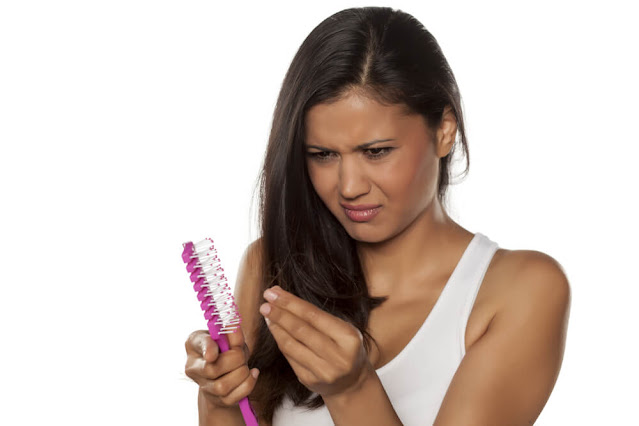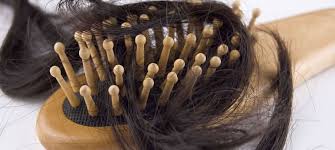Having a
stylish, voluminous, shiny hair is every man’s dream. And that’s the sign of
healthy hair. At least most men think so. And whenever you see your drain
clogged with hair strands you freak out considering that you’re having some
health issues which is causing hair fall. And then you overthink and come to a
conclusion that you may get bald. But that’s not how it works. And even if you
do, you can always come to the best hair transplant
clinic in Kolkata.
Hair fall
and getting bald share a typical relationship. If your hair is falling it
doesn’t mean that you are going to be bald. The reason you are going through
can be the cause of your balding though. But first things first.
Every human
being shed their hair each and every day. The number of hair lost by a man on
average in a day lies in between 50-100
which is considered normal. Since our scalp contains around 100,000 hair follicles so losing 100
doesn’t make any difference.
Life cycle of hair:
There are
hundreds of thousands of hair strands on your head and each one of them are in
a different stage of its two to five years life span. The factors which are
responsible of your daily hair loss are nutrition, stress, hygiene and styling.
In the cycle
of hair there are phases, Anagen,
Catagen and Telogen.
The phase in
which hair strands are growing is called the anagen phase. About 90% of the
hair strands are in this phase at any given time. Your hair grows approximately
at the rate of 1cm per month. And when something disrupts the growth of the
hair in this phase, it’s called anagen effluvium.
Then comes
the catagen phase where the hair strands stop growing. It doesn’t fall out but
it stops growing. This generally lasts for a week of two. About 1-2% hair stays
in this phase.
And lastly
the telogen phase where the hair strands prepare themselves to fall out of the
scalp. About 8-9% of the hair stays in this phase at any given point of time.
Telogen
Effluvium describes having more than 10 percent of your hair in the telogen
phase. Telogen effluvium is temporary, but more hair will fall out while you
have it. Stress, surgery, or even having a fever for a few days can bring on
telogen effluvium, but your hair will probably be back to normal within six
months.
Reason behind hair
fall:
Regular hair
fall is normal but if you start to have sudden hair fall which is more than the
normal rate of hair fall, there could be some possible reasons:
Alopecia
Thyroid
condition
Lupus
Nutritional
deficiencies
If the hair
fall seems to be heavy then you should consult a doctor before the time runs out!
Alopecia and
Baldness:
Amongst the
many reason of hair fall alopecia is one and one of the most difficult to get
rid of. There many kind of alopecia out of which Androgenic alopecia is the
most common that you will find in the streets. In this condition the hair falls
out form the crown leaving the hair in the back and side areas intact. If you
are suffering from this condition, there are some probable solutions to get
your hair back depending upon the intensity of hair loss you have suffered from.
If the hair
loss is medium and there are still some hair on your crown, your physician may
recommend you to use Minoxidil and Finasteride along with PRP treatment.
Minoxidil is
a topical solution which increases the blood circulation in the scalp which
boosts the hair growth. On the other hand Finasteride is a DHT blocker. DHT is
the hormone that blocks the hair follicle making the hair strands thin and grey
and ultimately prone to breakage. Finasteride stops the action of the enzyme
5-alpha reductase which converts testosterone into Dihydrotestosterone (DHT).
PRP
(Platelet Rich Plasma) therapy is a kind of therapy where platelet rich plasma
is extracted from the blood and then injected in the scalp. This platelet rich
plasma acts as a fertilizer to the hair follicles.
Now if you
have suffered from heavy hair loss then you have to opt for hair
transplantation surgery because no medications will work if you don’t have the
hair follicles. The concept of hair transplant is very simple. The hair grafts
are extracted from the back or side of the head (known as the donor area) and
then are inserted in the region where you have suffered hair loss.
There are
two basic ways of hair transplantation;
FUE (Follicular Unit Extraction) and FUT
(Follicular Unit Transplant).
In case of
FUE the hair grafts are extracted from the back or side of the head where the
follicles are healthy and less prone to damage using a punchinstrument and then
the grafts are inserted in the affected region. This method is opted for the person
who needs comparatively less number of grafts in the affected area.
In case of
FUT a strip in cut from the back of the head and then they are precisely
separated into individual grafts, the grafts are then inserted in the affected
region. This method is opted for the people who has gone through heavy hair
loss. The strip in the back is then stitched up.. General studies say FUT
procedure gives access to higher donor yield area compared to FUE. While going
through this method of hair transplant the patient doesn’t need to shave their
head. It gives a fuller and denser look as maximum number of donor grafts can
be extracted in this method. Also this method of transplant is cheaper than
FUE.
Bottom line:
Just because
you’re experiencing regular hair fall it doesn’t mean that you are going to be
bald. If the rate of hair fall is normal then there is nothing to worry about.
But if you are suddenly experiencing heavy hair fall visit a physician. Not
every cause of hair loss will make you bald.




































